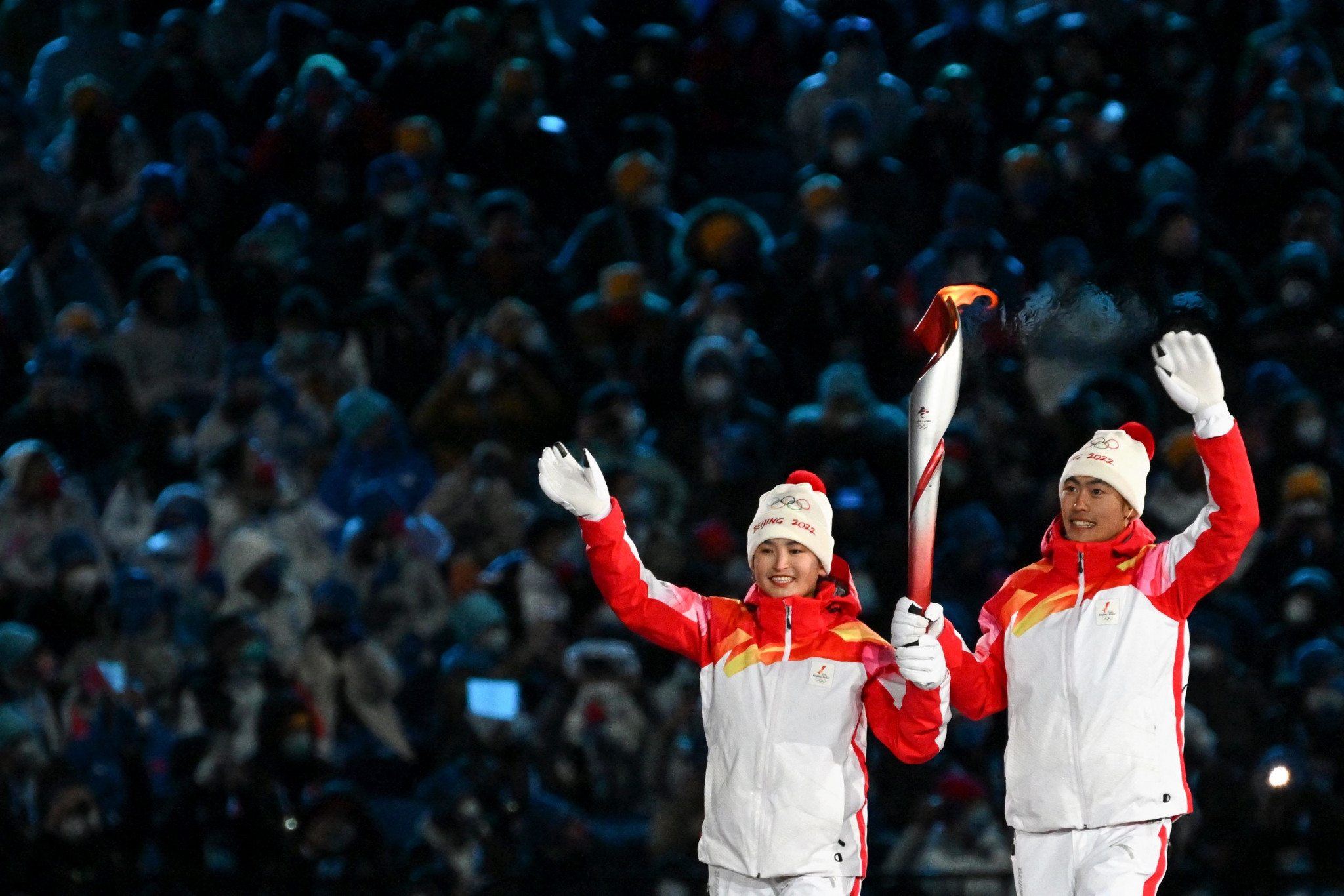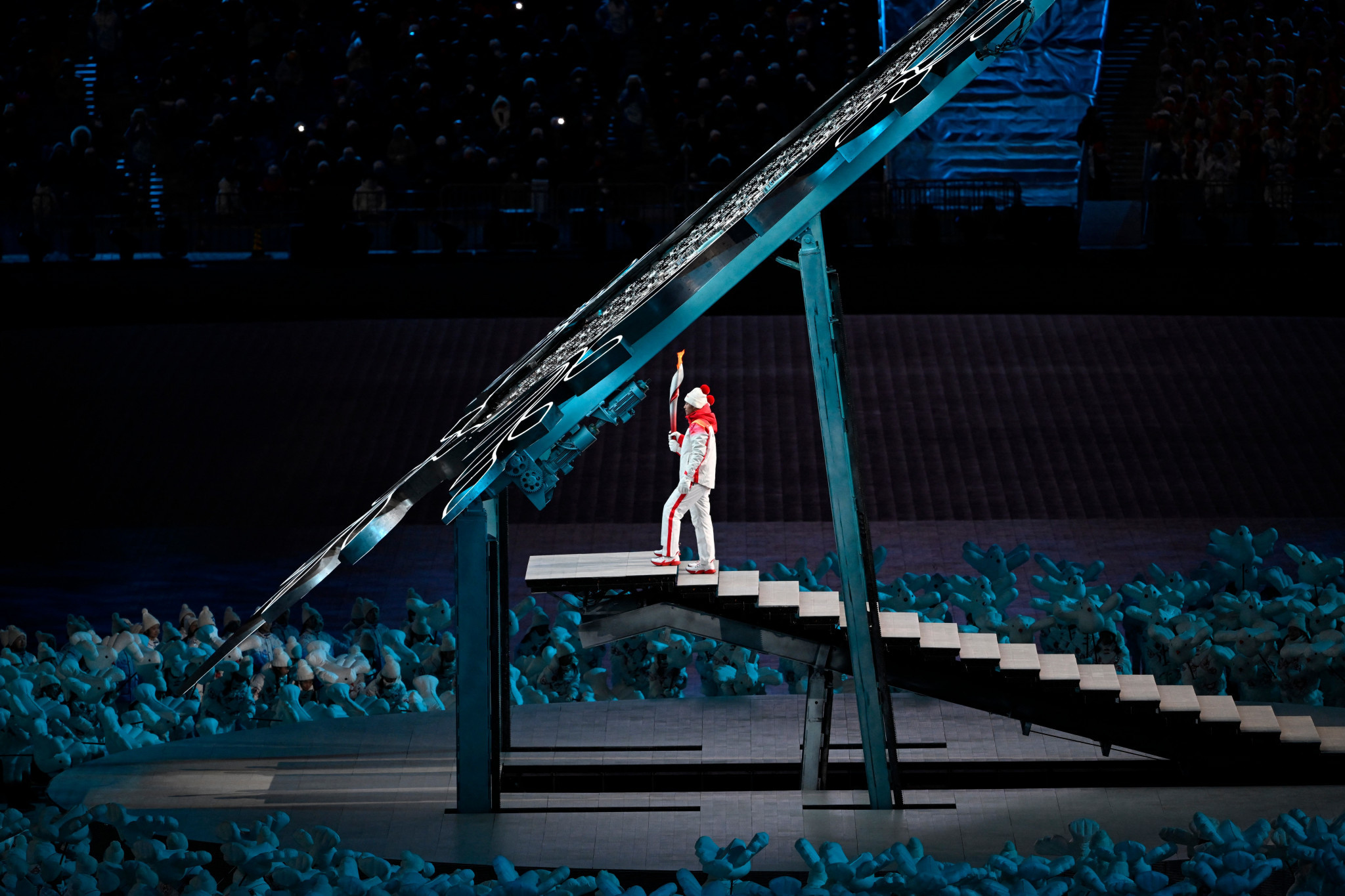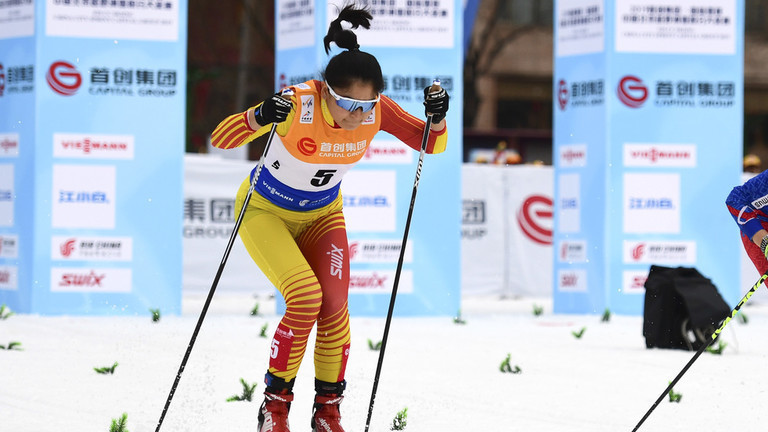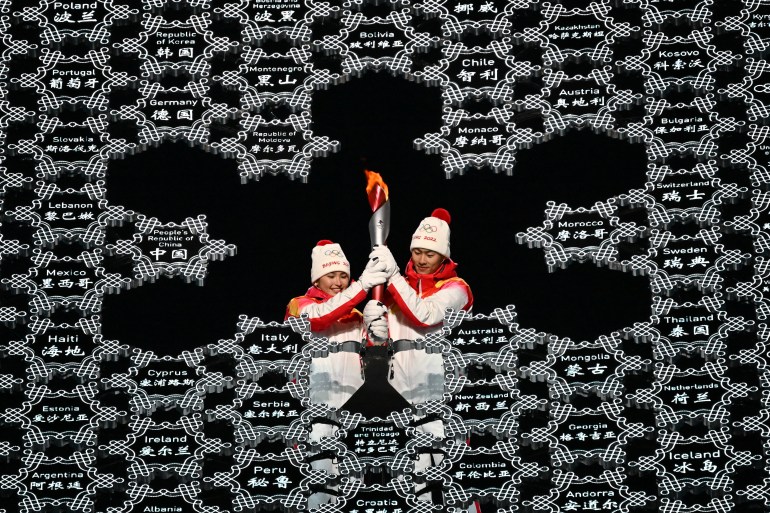Uyghur Cauldron lighter part of "lovely concept" at Beijing 2022 Opening Ceremony, claims IOC
- Saturday, 5 February 2022

A decision to use a Uyghur athlete to light the Olympic Cauldron at the end of the Opening Ceremony for Beijing 2022 at the National Stadium last night has been defended by the International Olympic Committee (IOC), who claimed it was a "lovely concept".
Cross-country skier Dinigeer Yilamujiang, a Uyghur from the Xinjiang region, joined Nordic combined athlete Zhao Jiawen in lighting a small flame that was placed inside a large snowflake at the National Stadium.
The decision has been viewed as a propaganda attempt by the Chinese Government, accused of genocide against the Uyghurs.
Bennett Freeman, member of the Coalition to End Forced Labour in the Uyghur Region Steering Committee, was among those to hit out at the by the move, which was approved by the IOC, according to Beijing 2022.
"It's a brazen, cynical ploy that the world should see through and understand the truth of the crimes against humanity that the Chinese Government has perpetrated against Uyghurs and other Turkic minorities in western China," said Freeman.
Dinigeer qualified for Beijing 2022 having become the first Chinese cross-country skiing medallist in an International Ski Federation-level event, finishing second in the opening women's leg of a three-leg sprint series in Beijing in March 2019.
The 20-year is set to compete in today’s women’s skiathlon event at the Zhangjiakou National Cross-Country Skiing Centre.

Dinigeer is among five athletes from the Xinjiang region competing at Beijing 2022, with Tian Ruining, Bayani Jialin, Alemasi Kahanbai and Hanahati Muhamaiti the others.
In response to criticism over Dinigeer's selection, Mark Adams, spokesperson for the IOC, said: "She is an Olympian competing here and as you will know from the Olympic Charter we do not discriminate against people on where they are from and what their background is.
"She is absolutely perfectly entitled to take part in the Torch Relay and I think the concept of having all the generations there was an excellent one."
IOC President Thomas Bach has repeatedly reiterated his stance that the Games are "beyond politics", insisting it remains "political neutrality".
The appearance of Dinigeer will be seen as sending a political message to those Governments who decided to shun the Games.
When asked whether the IOC were part of the decision to select Dinigeer, Adams added: "The Opening Ceremony is something that the Organising Committee put together and there is creative input.
"We are involved to a certain extent.
"This is an athlete who is competing here, she has every right wherever she comes from, whatever background she comes from to compete and she has every right whatever her background and wherever she comes from to take part in the Opening Ceremony.
"I think it was a lovely concept."

China has faced accusations of using forced Uyghur labour, operating a mass surveillance programme, detaining thousands in internment camps, carrying out forced sterilisations and intentionally destroying Uyghur heritage in the Xinjiang region.
The Chinese Government has repeatedly hit out at the allegations, claiming camps are training centres for stamping out Islamist extremism and separatism.
Seven Chinese athletes from six different decades from the 1950s to the 2000s were chosen as the final Olympic Torch Relay runners at the Bird's Nest.
Speed skaters Zhao Weichang and Li Yan, double Olympic short track speed skating champion Yang Yang and sprinter Su Bingtian carried the Torch before handing over to Dinigeer and Zhao.
Chang Yu, director general for the department of Opening and Closing Ceremonies at Beijing 2022, claimed the selection of torchbearers from different generations was an "important part of the Chinese tradition".
"We want to selected athletes that were born in the 1950, 1960s, 1970s, 1980s, 1990s and aftrer 2000," said Chang.
"We selected the candidates according to that principal but before the final approval of the IOC we cannot tell the torchbearers who are the candidates.
"We felt the effect was very good."
Winter Olympics: China stirs controversy with Uighur torchbearer
International Olympic Committee said Xinjiang native Dinigeer Yilamujiang had every right to participate.
Published On 5 Feb 2022
China’s move to thrust a young Uighur athlete into the spotlight at the climax of the Beijing Winter Olympics opening ceremony has placed her at the centre of longtime controversy over rights abuses in Xinjiang.
Dinigeer Yilamujiang, a 20-year-old cross-country skier, trained for years to fulfil every child’s dream to star at the Olympics.
But her prominent, smiling appearance as the final Olympic torchbearer on Friday along with 21-year-old biathlete Zhao Jiawen at the “Bird’s Nest” National Stadium in front of thousands of spectators and TV cameras had clear political overtones.
She is from the Uighur minority from the region of Xinjiang, where China’s ruling Communist Party is accused of widespread human rights abuses.
Following Yilamujiang’s appearance on television across the world, Chinese diplomats shared videos on Twitter of her family clapping as they watched the ceremony on screen, some dabbing tears from their eyes.
China has repeatedly exhorted its critics to stop “politicising” the Olympic Games, overshadowed by issues including human rights violations, COVID, and fears of what will happen to athletes if they speak out at the games.
Asked by journalists if Yilamujiang’s inclusion met the standard of political neutrality, the International Olympic Committee (IOC) said she had “every right” to participate.
“Obviously the opening ceremony is something that the organising committee put together and there’s creative input,” IOC spokesman Mark Adams said. “We are involved to a certain extent.”
“As you’ll know from the Olympic Charter, we don’t discriminate against people on where they’re from, what their background is,” he continued.
“This is an athlete who is competing here, she is competing this morning. She has every right, wherever she comes from, whatever her background, to compete … and to take part in any ceremony.”

Games organisers said the final handful of torchbearers who entered the stadium with the flame had been picked based on their birth dates with each having been born in a different decade, starting from the 1950s through to the 2000s.
The fate of China’s Uighurs has been at the centre of international alarm.
At least one million people from the mostly Muslim minority have been imprisoned in “re-education camps” in Xinjiang, campaigners say, and Chinese authorities have been accused of forcibly sterilising women and imposing forced labour in the area.
The United States has accused China of genocide, a charge denied by Beijing.
Although world leaders, including Russian President Vladimir Putin, were present at the ceremony on Friday, the US, Australia, the United Kingdom and Canada were among key countries that did not send diplomatic representatives over rights concerns, especially in relation to the Uighurs.
Ma Haiyun, an expert on Xinjiang and associate professor at Frostburg State University in Maryland, said Yilamujiang’s selection was intended to send a message.
“By selecting a Uighur athlete to light the torch, China is trying to address criticism by the West about genocide or persecution of the Uyghurs, and about sinicisation of ethnic minorities,” he told Reuters news agency.
“But I don’t think this can have much effect on the West, which tends to think most of what China puts up is a show anyway,” Ma added.
China rejects accusations of abuse, describing the camps as vocational centres designed to combat “extremism”, and in late 2019 said all people in the camps had “graduated”.
‘Breakthrough’ athlete
Yilamujiang started ski training aged 12, according to China Sports Daily, under the guidance of her father – also a cross-country skier who competed nationally.
She joined China’s cross-country skiing team in 2017.
Altay, the part of Xinjiang she is from, has been touted by Chinese state media as the “birthplace of skiing” and a growing winter sports destination.
In 2019, she became the first Chinese cross-country skiing medallist in an International Ski Federation event, with media reports lauding her as having achieved a “breakthrough” for the country in the sport.
Yilamujiang took part in last year’s World Championships, ranking 13th in team sprint and 41st in the 10km competition.
Her first event at Beijing 2022 was a skiathlon on Saturday.
The games run until February 20 and are taking place inside a “closed loop” bubble due to the coronavirus pandemic.
SOURCE: NEWS AGENCIES
No comments:
Post a Comment